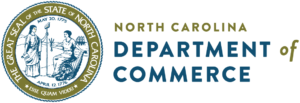Ohio Attorney General Dave Yost and 11 other Republican attorneys general filed a brief in federal court in Cincinnati arguing that the Federal Trade Commission’s attempt to block the merger of grocery giants Kroger and Albertsons is unconstitutional.
Their argument could limit the FTC’s ability to combat anticompetitive practices in areas like prescription drugs and concert tickets and could affect other executive-branch agencies practicing administrative law.
The argument aligns with Project 2025, a controversial roadmap for a potential second Trump administration, from which Trump is trying to distance himself.
Food giant
Yost’s office declined to comment on whether facilitating grocery mega-mergers is a core function. In a statement, Yost said, “The FTC’s judges are part of the executive branch, and that means they’re supposed to be subject to removal by the president. Their multilayered protections from removal undermine the president’s authority and violate the constitution.”
The FTC, which polices anticompetitive practices, reported in March that big grocers like Kroger and Walmart engaged in schemes that increased grocery prices during the pandemic, and these practices seem to be ongoing.
Cincinnati-based Kroger and Boise-based Albertsons proposed a merger that would create a chain with 5,000 stores and approximately 4,000 retail pharmacies, employing nearly 700,000 people across 48 states. Fearing reduced competition and higher grocery prices, the FTC sued to stop the merger in February.
Yost and three other attorneys general filed a brief last month seeking to end the FTC’s intervention, claiming that the merger would increase competition.
“The acquisition would likely increase, not restrain, competition in the market for grocery sales, benefiting consumers,” the brief stated. They listed Costco, Sam’s Club, Aldi, Whole Foods, Family Dollar, and Dollar General as part of the competitive landscape.
Sweeping challenge
On Monday, Yost and 11 colleagues filed a brief challenging the constitutionality of the FTC’s use of administrative law judges, arguing it doesn’t allow the president to fire them.
“This case arises from an administrative proceeding that defies the separation of powers. Kroger, a prominent grocery-store chain, is being subjected to proceedings before an Administrative Law Judge of an executive branch agency, the Federal Trade Commission,” Yost and the other attorneys general argue in their brief.
Attorneys general from Alabama, Georgia, Iowa, Louisiana, Montana, Nebraska, Oklahoma, South Carolina, Tennessee, Texas, and West Virginia joined the amicus brief.
Their argument could impact decades of rulings by agencies like the Environmental Protection Agency and the Securities and Exchange Commission.
The brief argues that earlier Supreme Court guidelines don’t cover the FTC’s action against the Kroger-Albertsons merger.
In 1933, the Supreme Court ruled in Humphrey’s Executor v United States that the president doesn’t have unlimited power to remove executive-branch employees, especially in agencies like the FTC.
Controversial ideas
A similar argument appears in Project 2025, a 900-page policy document for a second Trump term. It questions whether the FTC should enforce antitrust laws or even exist, suggesting antitrust enforcement should be handled solely by the Department of Justice.
Some conservatives believe the Supreme Court decision in Humphrey’s Executor should be revisited.
Conundrum
Yost has opposed anticompetitive practices on other fronts, overseeing lawsuits against health conglomerates that own pharmacy middlemen accused of raising drug prices.
One lawsuit under Ohio antitrust law targets Cigna-Express Scripts. However, Yost’s argument in the Kroger case could undermine efforts to rein in pharmacy middlemen.
On Friday, the FTC filed a lawsuit accusing major health conglomerates of working to raise insulin prices, a drug essential for diabetics. This action was also filed as an FTC administrative law proceeding, a process Yost and his colleagues aim to end.





